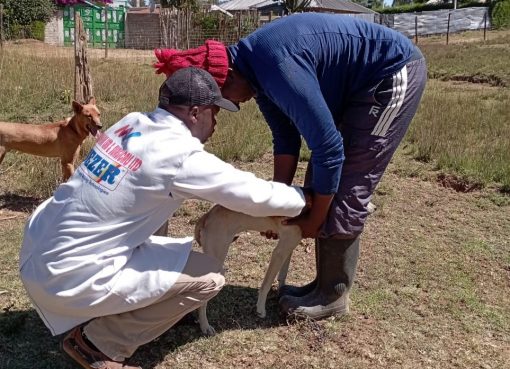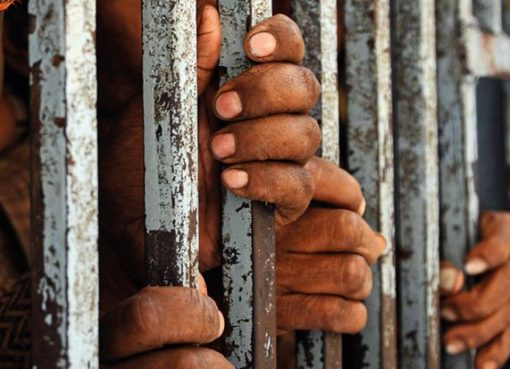Culture is like the backbone of any society; it is what gives them a sense of belonging and identity through shared values and common practices.
According to Wendell Pierce, the role of culture is that it is the form through which a society reflects on who people are, where they have been, where they hope to be.
The Luo people, like other communities in Kenya have had their own cultural practices that were initiated by their forefathers and have since been carried from generation to generation.
Back in the days, the members of the community upheld their customs with profound faith and diligence, practices that are now considered retrogressive and are slowly fading away.
Some negative practices have over time been abandoned but a section of elders within the Luo people express their apprehension that modernization is making the younger generation throw away the baby with the bath water, losing some important cultural practices in the process.
Anna Atieno, a 77-year-old woman from Ng’onglo village who has lived all her life being taught to adhere to these cultural practices says that these customs are now not being passed on to the younger generation therefore people are losing a sense and grip of their own customs.
She has lived up to the expectations of her forefathers but due to her old age she cannot keep up with these practices. She says that things have really changed and it’s no longer the same with how they were being brought up.
Atieno also says that during their time, no one was allowed to flout the cultural practices otherwise he or she was to suffer the consequences for their action. These cultural practices brought the people together and they upheld them with utmost sincerity due to the faith they had attached to these customs.
She acknowledges that the birth of a child brought happiness not only to the family but also to the people around them. The people would then come to celebrate with the family after the birth of the child.
Atieno says when it was time to shave the baby’s hair, the grandmother of the child was the one to take up the task although in her absence an elderly woman would partake in the activity but, a calabash full of water and traditional herbs had to be availed for the rite.
The calabash full of water was used to prevent the baby from being obese while the traditional herb was used as soup for the baby.
She says that the child was also to be named after a deceased relative in accordance with the time and the season he or she was born, for instance, if a baby was born early in the morning, he would be called Omondi and in the case of a girl she was to be called Amondi.
Atieno states that she bears the name Atieno because she was born at night and that’s how she was named, according to time. In the case of twins, the male children were to be called Opiyo and Odongo while the female ones would take the names Apiyo and Adongo.
She notes that children born during climatic seasons like the rainy season, a baby boy would be called Okoth while a baby girl would be called Akoth hence it was easy to recognize what the name of the child actually meant and symbolized.
This mode of naming is still upheld by the Luo people however, most of the people now don’t name their children after their dead relatives for the reasons that they consider it hazardous and it would bring bad luck to the baby. They have also gone to an extent of borrowing foreign names from western countries.
Atieno further explains that in this day and age, she does not enjoy the privilege of getting to shave her grandchildren because their parents who are her children have decided to adopt the modern way of shaving by taking them to barber shops.
“Initiation time was the most difficult part during our time, others ran and hid but at the end of the day you had to undergo the process,” says Atieno.
The youths were to be gathered around in groups to which they were taught all the responsibilities and duties they were to take up after their initiation ceremony. The girls were taught by their grandmothers while the boys were taught by their grandfathers.
During the initiation ceremony, a sharp pointed end of a hoe was forced in between the middle of the teeth and once the middle tooth had been removed the remaining incisor became loose. Six front teeth were removed on the lower jaw to test the courage and endurance of both men and women in the community.
This was considered a transition from childhood to adulthood done to both genders. Nowadays removal of the six lower teeth has been abandoned and people prefer to get their male offspring circumcised while the female ones are left to just undergo the adolescent stage.
The Luo people have adopted the circumcision practice from the other communities like Agikuyu and the Maasai but they didn’t engage their females in the process.
This procedure has its benefit in that the men have a lower risk of certain sexually transmitted infections like HIV and they have been spared from penile problems like urinary tract infections. They also don’t have to face the humiliation from other communities of not being circumcised.
Having undergone the marital process, Atieno says that, traditionally, marriage customs were mostly prioritized. A man who intended to marry at the time had to ask the parents of the bride for the agreement and define the bride price in which a ceremony called the “Ayie” was held.
The ceremony was done so that the man would have to pay a sum to the bride’s mother, the bride also had to prepare food for the groom and feed him in front of everyone as a sign that she had accepted him and all that accompanied him
Thereafter, the ceremony that followed was the “Meko” which is described as the bride kidnapping. The girl would get kidnapped on her way to the river and taken to the hut of the groom for deflowering in the presence of four witnesses.
The witnesses would then inform the girl’s parents about her virginity and later on, the bride’s parents would slaughter an ox and give the meat to the groom’s family. Finally, the groom pays the dowry to the bride’s father with several heads of cattle to seal the marriage.
In these present days, marriage must contain a mutual agreement between the couples. The constitution does not give room for any kind of forceful marriage and people are allowed to choose their life partners. People also live as married couples nowadays before the payment of the dowry and go as far as having children. Modernization has made it easier since now people engage in white weddings.
“People now have the freedom to choose whoever suits them and there’s no objection. If you make a mistake of choosing the wrong partner then that is solely your burden to deal with,” added Atieno.
The final rite of passage that everyone has to undergo is death. Luo people announced the death of an elderly person by loud wailing by women and sound of drums in the evening or in the early hours of the morning to express their grief and respect to the dead. If a baby died at the time, the announcement was done immediately and the burial carried out the following morning.
Men carried out a ritual close to the river in which they slaughtered animals to ensure that the water drags away the spirit of the dead for example, if an elder had died, then they would slaughter cattle while if a young person died, they would kill a cock to get rid of the evil spirit.
In case a man died and left the wife, the widow’s hair got shaved and that marked the beginning of a new life for the spouse of the deceased and to enable them fully take part in mourning their deceased husband.
In some cases, if the man had a brother, the brother would inherit the widow and meet all of her marital requirements and this included her children too had to be cared for.
“People no longer heed these customs that have long been practiced by our ancestors and they prefer adapting to western cultures more. Widows are no longer asked to shave their hair and no slaughtering of animals takes place to woo away the evil spirits. The dead are now preserved in mortuaries where they are taken care of till the burial date,” Atieno says.
“No one is also ready to take a dead brother’s wife to be their own because of the changing societal outlook of such a practice in addition to the tough economic conditions,” she says.
“Luo people are now letting these customs slip from them since they feel no need of carrying out outdated customs that they feel have less value. They are gradually replacing their customs and adapting to the customs of Western countries, eventually their language will disappear as urbanization encourages people to learn a country’s dominant language while the number of learned people also continues to increase,” she adds.
By Belinda Adhiambo





